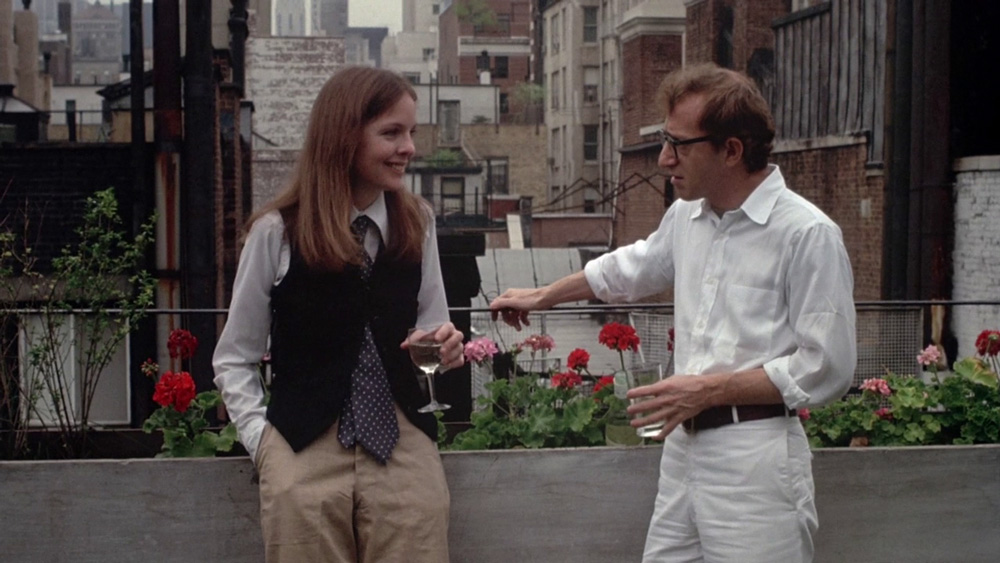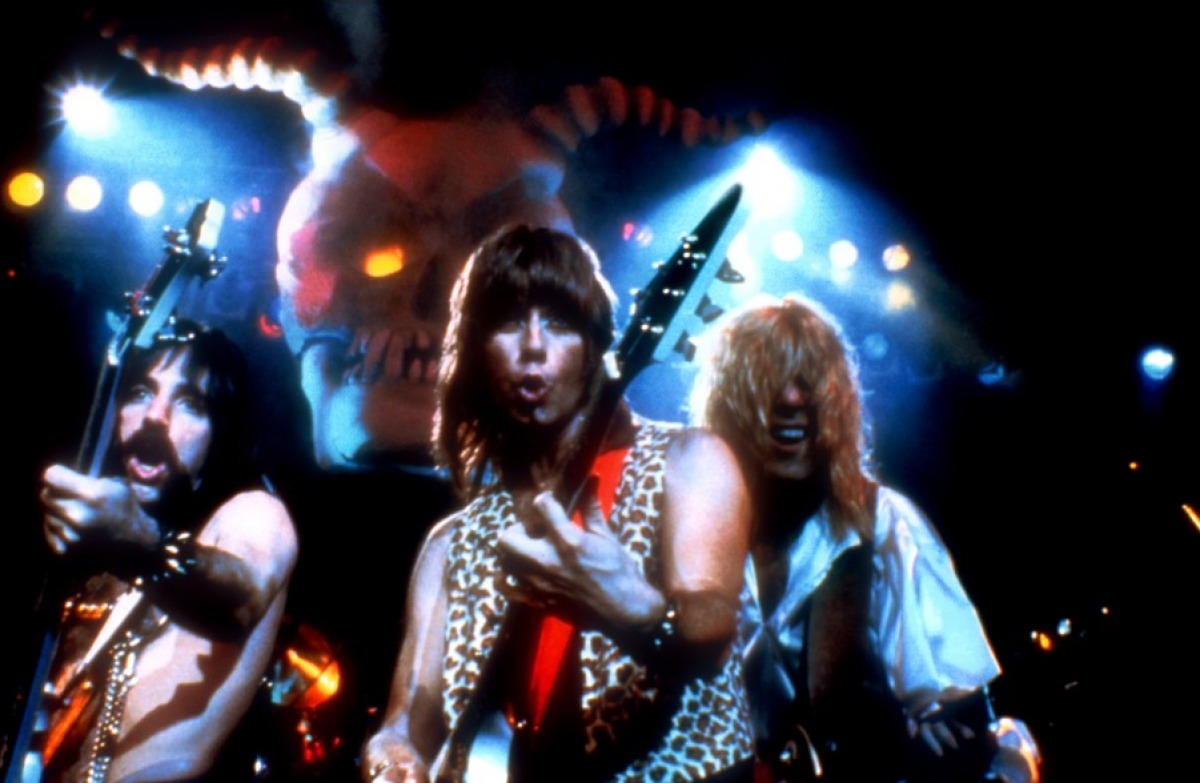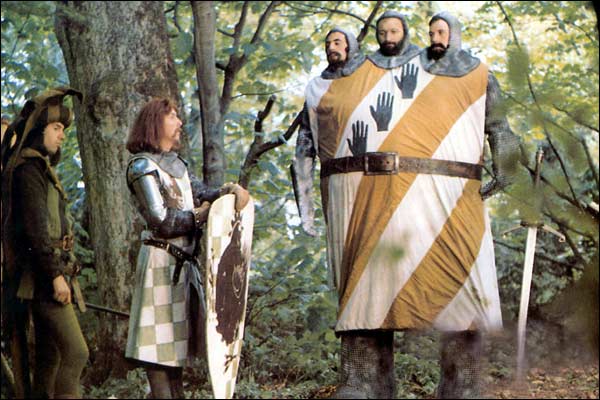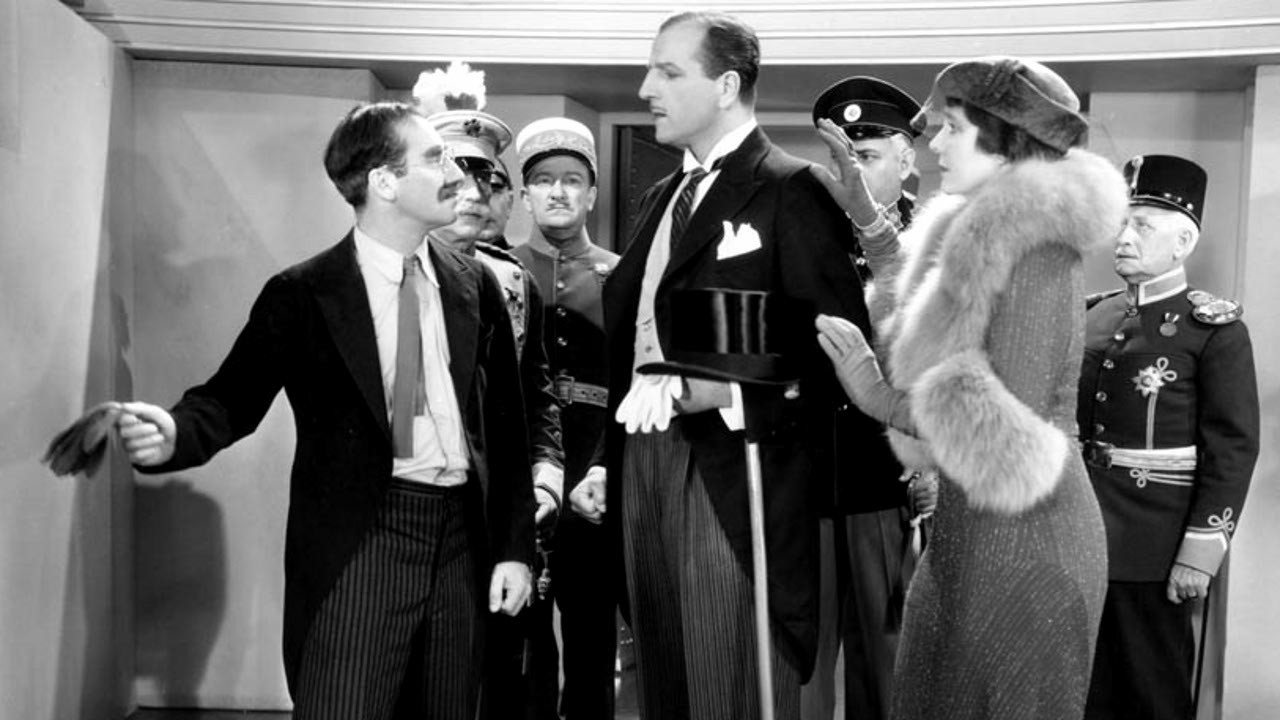5. Dr. Strangelove (1964)

“Gentlemen, you can’t fight in here. This is the war room!”
Arguably Stanley Kubrick’s finest film (or maybe at least a close second to 2001: A Space Odyssey), Dr. Strangelove or: How I Learned to Stop Worrying and Love the Bomb takes a decidedly unfunny premise, in this case the end of the world brought upon by nuclear conflict, and turns it into some of the funniest frames ever wed to celluloids.
Boldly sserting that nuclear war is inevitable, Kubrick presents comedic tragedy and builds it to ascension — largely owing to Peter Sellers in three uproarious roles — and the knife-edged satire all but mushrooms forth from there.
Loosely adapted from Peter George’s 1958 novel “Red Alert” by the brilliant Terry Southern, this is easily one of the greatest black comedies ever made. Though practically a one man show from Sellers (he’s the titular Doctor, the RAF Group Captain Lionel Mandrake, and the befuddled American President Merkin Muffley), he gets great support from George C. Scott, Slim Pickens, and Sterling Hayden.
The film that Roger Ebert said “is the best political satire of the century; a film that pulled the rug out from under the Cold War by arguing that if a ‘nuclear deterrent’ destroys all life on Earth, it is hard to say exactly what it has deterred.” Be sure nothing deters you from seeing this film at some point, as it’s a comedy that has grown in relevance over the years, for better or, fearfully, for worse.
4. Annie Hall (1977)

“La-di-da, la-di-da, la la.”
Extolling love while simultaneously pushing it away, Woody Allen, with Annie Hall, made the template that all romantic comedies would aspire to forever afterwards. Certainly sentimental, Annie Hall is also bleak, meta, moving, complex, and artful. It’s the perfect distillation of Allen’s work as a writer, director, and actor, and his muse, Diane Keaton, gives one of the great comedic performances of all time.
Certainly the film Allen and Keaton will be most remembered by, Annie Hall was something of a phenomenon when it was initially released and it remains one of the most quirky, quotable and highly valued American films of the 1970s.
Alvy Singer (Allen) and Annie Hall (Keaton) fall in love, have many ups and downs, and ultimately part company – no spoilers here, this is all revealed in the opening monologue of the film – and yet their story is universal, the avant garde approach Allen takes in delivering it is alternatingly humbling and hilarious. For me and for many, this is cinematic comfort food, as well as an exuberant and introspective standard of the genre. A liberating artistic step forward for Allen, Annie Hall is his chef d’oeuvre of both pathos and playfulness, and it’s also a classic.
3. This is Spinal Tap (1984)

Rob Reiner’s 1984 cult comedy classic This is Spinal Tap has to be near the top of this list… and why not? Easily one of the greatest American comedies ever made, Reiner’s zeitgeist defining mockumentary is also one of the most quotable films around. “You can’t really dust for vomit”, “we’ve got armadillos in our trousers”, “These go to eleven”, and “that’s just nitpicking, isn’t it?” never fail to bring out the laughs, no matter how many times you’ve watched it.
David St. Hubbins: “It’s such a fine line between stupid, and uh…”
Nigel Tufnel: “Clever.”
The improvisational master class lead by Christopher Guest, Michael McKean, and Harry Shearer truly astounds, as does brilliant comic turns from the likes of Bruno Kirby, Paul Shaffer, Tony Hendra, Fran Drescher, and June Chadwick amongst others (indeed part of the great fun in viewing Spinal Tap is keeping track of all the cameos).
The music is as funny as it is furious, at times, and the satire so sharp many on its initial release didn’t grasp it (see Eddie Van Halen and Steven Tyler) and others were convinced that Tap was a real band. Guest, McKean, and Shearer have toured and released a few albums since, so, Spinal Tap are a real band now after all, more or less, and their cinematic debut is now rightly seen as the stuff of comic legend. Gold!
2. Monty Python and the Holy Grail (1975)

Is there a more quotable comedy than the side-splitting, pants-pissing, so-funny-it-hurts tour de force, Monty Python and the Holy Grail? Considered to be the British troupe’s first film proper—their portmanteau picture four years before, And Now for Something Completely Different, was comprised of sketches previously seen on their Flying Circus television show—the Holy Grail soared to cult status celebrity almost as soon as it opened in theaters in 1975.
Meta-comedies existed before—like Woody Allen’s Sleeper (1973) and Mel Brooks’ Blazing Saddles (1974)—but the Pythons gleefully rushed the gate with their absurdist brand of intertextual parody. Its an intelligent celluloid animal; there’s social commentary in the mode of the Marx Brothers, even Hieronymus Bosch (“bring out your dead”), and it’s so densely packed with gags that a single viewing can’t reveal them all.
Hence the ritualised repeat-viewing audience, ready to sing and shout along in ultra-clever faux English accent (or preposterous French iteration when doing the taunters). A classic comedy, as absurd as it is uproarious.
1. Duck Soup (1933)

In truth, the top spot of this list could be almost any Marx Brothers film as pretty much every other movie on this list wouldn’t be here at all were it not for the massive influence and groundbreaking hilarity that Minnie’s boys brought to the silver screen and popular culture at large. But it may well be that 1933’s Duck Soup best exemplifies their remarkable work, displaying the legacy of what these quipping, singing, teasing, endlessly ribbing siblings did best as here they bring it all down upon the mythical country of Freedonia.
Often considered by film scholars and fans to be the Marx Brothers’ finest film, Duck Soup earns its stripes in part, of course, to the manic brothers, to their great “straight woman” Margaret Dumont, but also to the original music from Bert Kalmar and Harry Ruby. And not to mention the re-working of many tried and true traditional numbers––as when the spiritual number “All God’s Chillun Got Wings” is miraculously re-worked with a cynical sting as “All God’s Chillun Got Guns”.
In the unstable country of Freedonia, the country’s primary benefactress is one Mrs. Teasdale (Dumont), ready to donate millions to the country’s new leader, the reformist Rufus T. Firefly (Groucho Marx). Firefly’s inaugural singalong “Just Wait ‘Till I Get Through With It” parades his intentions to abuse his power, and his most trusted spies, Chicolini (Chico Marx) and Pinky (Harpo Marx), will of course do their part to cause trouble (and drive at least one peanut vendor mad in the process).
In the words of Freedonia’s leader, “I got a good mind to join a club and beat you over the head with it.” Duck Soup is anything but subtle, and singing, stinging, and constant, hilarious string of insults aside, it’s also a great introduction for anyone who’s yet to be enamored with the Marx Brothers. This is essential and unmissable cinema.
Author Bio: Shane Scott-Travis is a film critic, screenwriter, comic book author/illustrator and cineaste. Currently residing in Vancouver, Canada, Shane can often be found at the cinema, the dog park, or off in a corner someplace, paraphrasing Groucho Marx. Follow Shane on Twitter @ShaneScottravis.